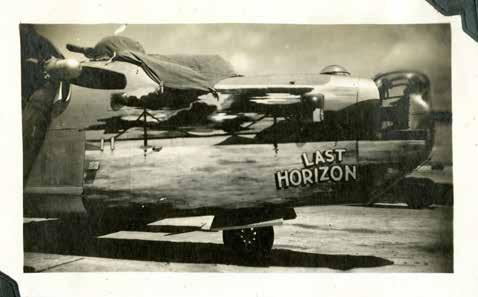
7 minute read
ARCHIVES FROM THE
Milton E. Emkow, a Columbus, Wisconsin resident, served as a gunner in the 90th Bombardment Group in World War II. During his service in the Pacific, he collected photographs of the nose art he encountered.
Toward the end of the war, restrictions were more strictly enforced after the pin-up art fell out of style. Today, aircraft are still decorated, but now with fierce shark teeth and lucky symbols replacing gendered artwork.
Advertisement
Gerald “Jerry” L. Paul, a Sparta, Wisconsin resident, served as a crew chief in Marine Medium Helicopter Squadron 163 in Vietnam. Here a helicopter is being customized with eyes. At right, Paul and a fellow Marine pose in front of a helicopter. WVM.0890.I117, 225.01
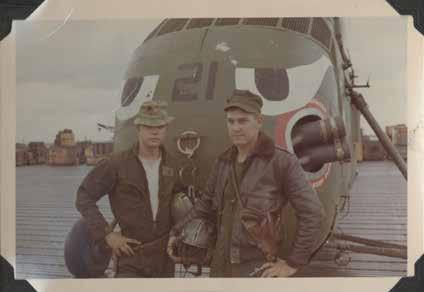
Thomas J. Schnetz, a Milwaukee, Wisconsin resident, served with the 303rd Air Service Squadron in World War II. This image features an unidentified man standing next to a bomber with a shark mouth and eye, named Who Cares? WVM.0917.I027
This B-24 is decorated with a view of the Golden Gate Bridge, and is named Last Horizon WVM.1725.I061.01
By Christopher Kolakowski and Yvette Pino

The news of vaccines has promised significant relief from the coronavirus pandemic. The end is in sight, with a return to some form of pre-pandemic life visible in the very near future.
In a sense, the country during coronavirus has lived a life broadly comparable to the experiences of prisoners of war or those on deployment. It has been a focused and uncertain existence, narrowly defined physically, often day-to-day, and with a constant danger. It has also required significant adaptation to people’s lifestyle and routines.

As the coronavirus pandemic abates, the experiences of released prisoners of war and troops back from deployment offer lessons about the transition that is coming.
“While a prisoner, you never relaxed or dropped your guard. Now I was free and safe. The nightmare began and I started to walk in my sleep . . . By 1948 I was ripe to explode. I started going to a mental clinic in Madison. An old doctor there talked to me. He answered the phone more than he talked to me, but at least he didn’t call me a liar. After a year I had explained all the things which happened [in captivity]. His advice: Stop hiding at home, get out, and talk to people. What had happened could not be changed: till I could talk about it I would never get over it. I have taken his advice.”
“I remembered the little amenities people in civilized circles took for granted, but I was not comfortable using a knife and fork, trying to remember that pants were to be zipped, that toilets were to be flushed, that car doors and doors to buildings were to be opened for females, that money was to be kept in checking accounts which one had to know how to balance. I was awkward with all these things, and it bothered me . . . I was fleeing from something, I knew not what, although there was no longer anything to fear or run from. I was nervous because I was nervous.”
“I think it was just I was unfortunate and I was there and I had to survive. I wanted to survive and I had to do it in the most honorable means, that was, you know, so I could come home and, and not be ashamed of anything . . . I feel positive about my experience in the sense that I have a broader, I think, outlook on life, I know what it is to be without - without necessities, what we consider necessities, clothing, shelter, things like this. I appreciate what we have in this country, in our, in our civilization - and I want to, you know, instill this in my children.”
“Since arriving in the States I have met five men and nine nurses who survived Bataan and Corregidor. We talk together, have drinks and see shows and hear music together, and all the time we know something about ourselves and each other that no outsider can ever know. It is impossible to explain what it is like to meet them here in the opulence and security of America and look back to the unspeakable things, the suffering and the agony – yes, and the glory – we saw together . . .

I find myself getting panicky in upper berths. I cannot stand closed windows. I cannot sleep the entire night through, and my dreams are fitful and changing. I know I’ll get over these things in time, but until now these obsessions are very real.”

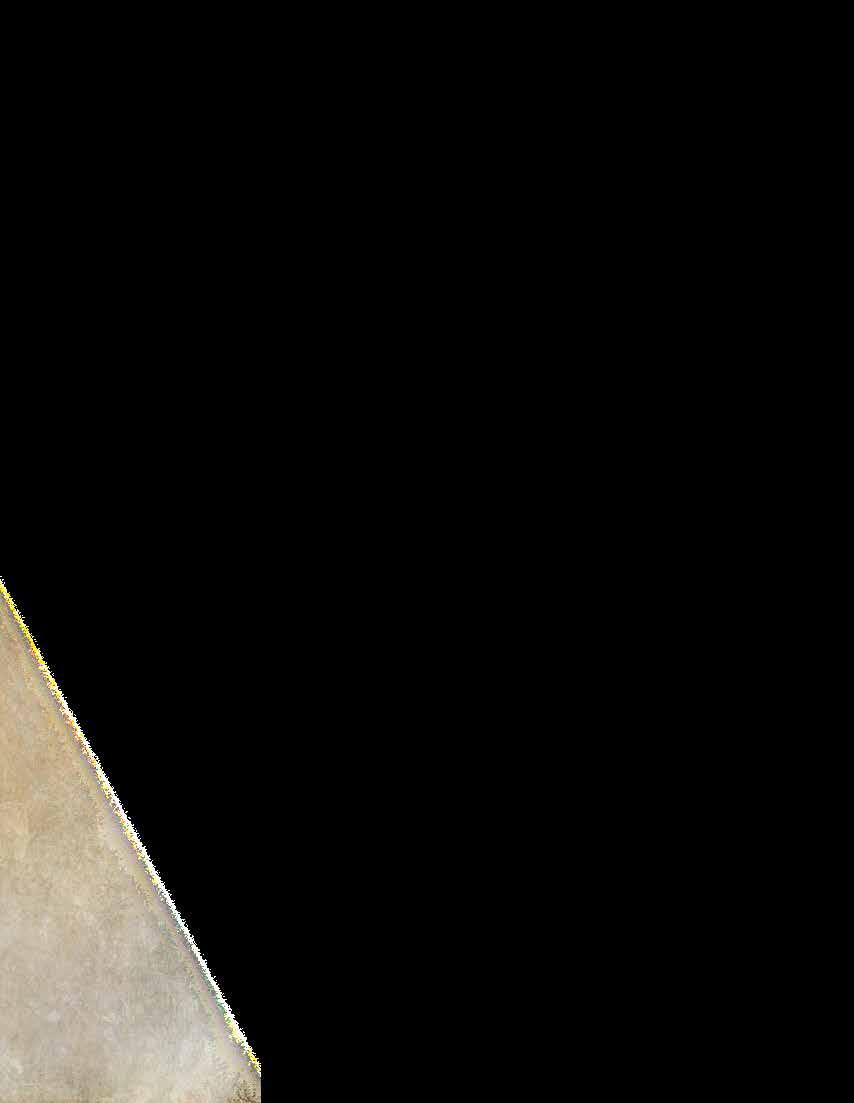
After two deployments, isolation and working around the clock are not strange bedfellows to me. I’ve felt an odd familiarity in all that the COVID-19 stay at home orders introduced. I flipped an embedded switch in my brain that told me that I was now mobilized, metaphorically, and subject to a new existence with perimeters, special rules, protective gear, and an enemy that often presents itself as invisible, thus to remain alive, I must be on constant alert. My brain transitioned into ‘deployment mode’ over a year ago, and as soon as the COVID threat was real, I prepped my gear and my mind to be ready for the long haul. Going outside was deemed safe for limited amounts of time, and I never left the perimeter of my house without my mask. My decontamination kit stayed at my side and I scanned every passer-by. What I did not realize was that ‘deployment mode’ is not how society should function. For the first six months, I was either unaware or complicit to living in a PTSD-induced reality. When I learned that my best friend was now on the frontlines as a nurse in New York, it felt like she was in a war zone and I was back home, only aware of her existence by way of the media. How unnerving. And I remembered that when I was in harmsway it was different because, I could see the harm in front of me and I could prepare. My family could not. They could only imagine. Now I knew how that must have felt. As we grow closer to transitioning back to a world similar to the pre-COVID era, I know that it’s time to flip the switch and let my brain come home. But I also know that in coming home, or in this case, returning to societal interaction, things won’t ever be the same again. We will be constantly looking for the rituals of survival. We will look to make sure we have our masks. We will be aware of the social distance protocols. We will over-analyze every protocol and enforced policy from past to present and we will refer to our personal histories as pre-COVID versus post-COVID. But we can also find comfort in the fact that this is a collective moment. We will experience it together and we will continue to support each other in this new existence.

“I consider myself a very strong-willed person, I think that I've got a good head on my shoulders, I'm very analytical when it comes to thoughts, and I feel like I'm one of those people who--I thought I was going to be able to adjust just fine. I mean, I'm intelligent, you know, I can think things through, but when I got home, I was, I was just dumbfounded by how depressed I had become. And I couldn't-I wasn't my normal self. I would look at pictures from before I left, and I'm like, "Wow, look at how happy I am. I'm never going to achieve that level of happiness again." I felt like I was scarred from what I went through in Iraq, and I could never, ever be happy again. So it was very depressing when I got home, and then I talked to some of my fellow soldiers like six months later, and realized that we were all going through the same thing. And that lifted every--like it lifted the brick off my shoulders, it made me feel better knowing that I wasn't the only one with these thoughts, that I wasn't alone in all of this.
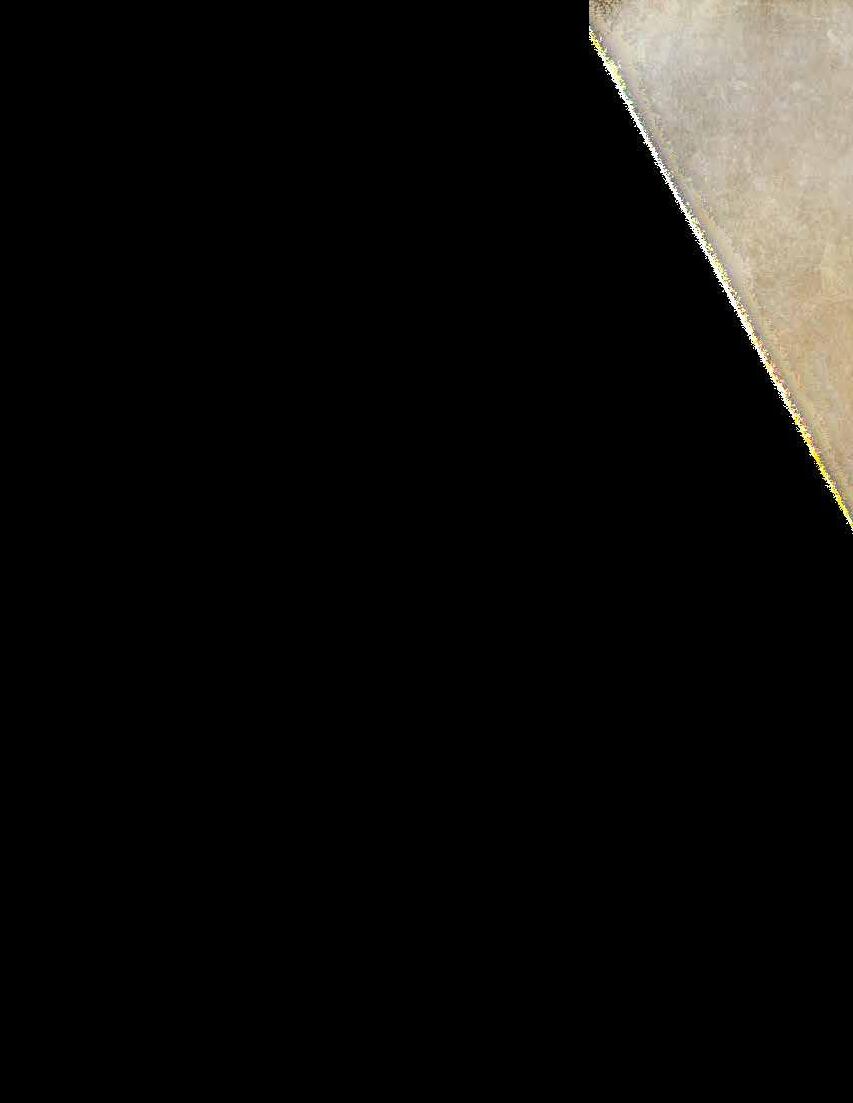
“…It's the chess match. So you wake up in the morning going, Okay, what was their move last night? What are they trying to plan for today? How are we gonna try to counter that? And I mean, it's exciting because it seems that you're--it doesn't take much for the brain to kick in that this is in fact survival, this is your life at stake. And your senses are at their peak in a way. I don't know, it's a strange thing. All the sudden you're operating at two-hundred RPM whereas back here in the United States you're operating at fifty RPM. You're focused on survival…You wake up every morning just so focused and operating, I think, just at such a high level that you come back from that and it's nice to relieve that stress but… It's difficult. Yeah. You come back and you start--you know, pay a cell phone bill, just bills, little things. This is petty. This has nothing to do with survival. It's difficult from that standpoint of you were the--I was operating basically a county-wide area, trying to root out Taliban. I was the American in charge. And to come back to just a different role is hard. And to come back and--I mean, the word surreal is over used, but that's what it is comin' back. To have to worry about petty things again. Petty, civilized things, you know. As opposed to just survival.”
One of the unfortunate realities of the COVID-19 shut down has been the economic impact on restaurants, small businesses, and their staff. Similarly, cities and towns where major military installations reside suffer the same consequences to their local economy when entire divisions of troops deploy at one time. This article was written in February 2003 for the Kentucky New Era and it discusses the effect on local businesses when the 101st Airborne Division began its year-long deployment to Iraq that same month. This article was shared by WVM staff member and 101st Airborne veteran Yvette Pino.
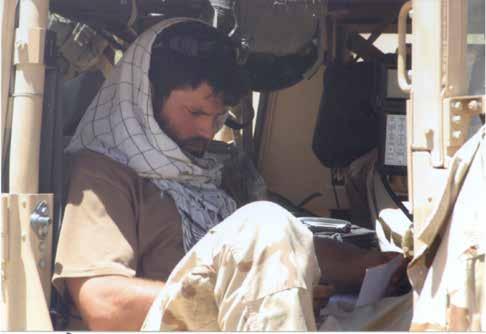
9-11 Attacks
Desert Storm, Desert Shield, + Overseas Contingency Ops to Date
Covid-19
Pearl Harbor
Iwo Jima
Battle of the Bulge
D-day
WWII
Korean War
Vietnam War
WWI
Gettysburg
Civil War - Union
Mexican War
Antietam
Revolutionary War
Trail of Tears
Spanish Flu
Visual Comparison of Covid-19 Deaths in the US to Other Mass Losses of US Life
As of 5/10/2021 US Covid-19
US deaths numbered 595,838






